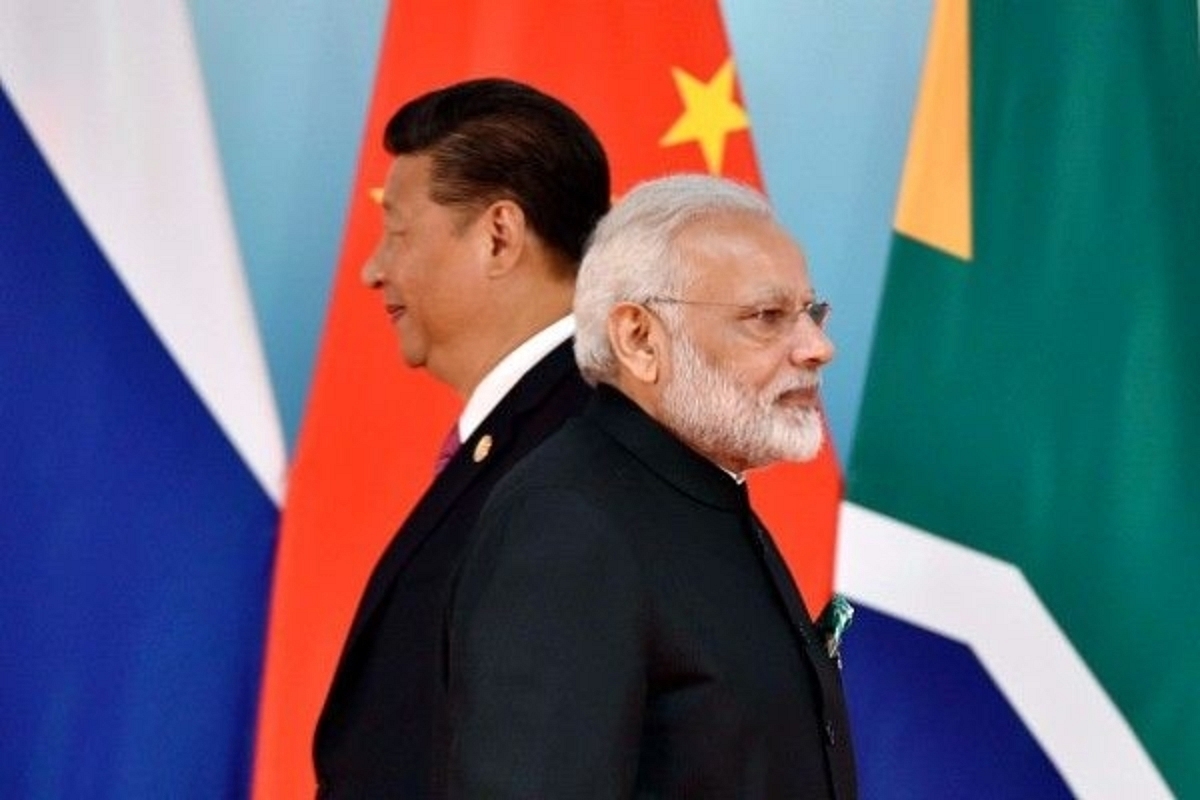World
How China Reacted To India-Middle East-Europe Economic Corridor, Emerging As A Rival To Its Sinking Belt And Road Initiative

Chinese President Xi Jinping and Prime Minister Narendra Modi. (Representative Image)
China has expressed its support for the India-Middle East-Europe Economic Corridor, as long as it is not used as a geopolitical tool.
The Chinese government also downplayed Italy's decision to withdraw from the Belt and Road Initiative (BRI).
The Chinese Foreign Ministry stated that they welcome initiatives that genuinely contribute to the development of infrastructure in developing countries and promote connectivity and common development.
However, the ministry also emphasised the importance of open and inclusive connectivity initiatives that do not serve as geopolitical tools.
Prime Minister Narendra Modi recently announced plans for the corridor, which involves several countries including India, the UAE, Saudi Arabia, the European Union, France, Italy, Germany, and the US.
PM Modi expressed that the partnership reached today is significant and historic.
He believes that in the future, it will serve as a major medium for economic integration between India, West Asia, and Europe.
According to Modi, the corridor will not only enhance connectivity but also contribute to the sustainable development of the entire world.
Meanwhile, US President Joe Biden referred to the pact as a big deal, emphasising its aim to promote clean energy and better communities.
President Biden also emphasised the need to maximise the impacts of investments as they work towards addressing infrastructure gaps in low- and middle-income countries.
Analysts believe that the new corridor is the first global connectivity project to rival China's BRI which has faced criticism for its debt sustainability, particularly from smaller countries.
The initiative has been experiencing significant headwinds, which have been exacerbated by China's domestic economic issues.
Chinese President Xi Jinping launched the ambitious multi-billion-dollar BRI in 2013.
The initiative aims to connect China with Southeast Asia, Central Asia, the Gulf region, Africa, and Europe through a network of land and sea routes, essentially rebuilding the old Silk Road trade route.
Italy's recent decision to withdraw from the BRI poses a significant challenge for China.
The Italian Foreign Minister, Antonio Tajani, stated that the initiative "did not bring the results we expected," and there was opposition from various Italian parties.
China's announcement of the upcoming third conference of the BRI in Beijing next month coincides with Italy's decision to exit the initiative.
Italy' decision to withdraw from the project will be seen as a source of embarrassment for President Xi and his pet project.
During the G20 summit in New Delhi, Chinese Premier Li Qiang and Italian counterpart Giorgia Meloni reportedly discussed the BRI.
When asked about the BRI's role in the Li-Meloni talks, Chinese Foreign Ministry spokesperson Mao Ning stated that both leaders exchanged views on important bilateral issues, agreeing to enhance dialogue and cooperation for mutual prosperity and development.
Regarding the BRI, Mao Ning highlighted that over the past decade, more than 150 countries and cooperation partners have joined the initiative, bringing tangible benefits to their people.
"It is in the best interest of all partner countries to continue exploring the potential for cooperation," she emphasised.
Rather than directly addressing the BRI, she highlighted that China and Italy share a common historical background as ancient civilisations located on opposite ends of the ancient Silk Road.
Support Swarajya's 50 Ground Reports Project & Sponsor A Story
Every general election Swarajya does a 50 ground reports project.
Aimed only at serious readers and those who appreciate the nuances of political undercurrents, the project provides a sense of India's electoral landscape. As you know, these reports are produced after considerable investment of travel, time and effort on the ground.
This time too we've kicked off the project in style and have covered over 30 constituencies already. If you're someone who appreciates such work and have enjoyed our coverage please consider sponsoring a ground report for just Rs 2999 to Rs 19,999 - it goes a long way in helping us produce more quality reportage.
You can also back this project by becoming a subscriber for as little as Rs 999 - so do click on this links and choose a plan that suits you and back us.
Click below to contribute.
Latest